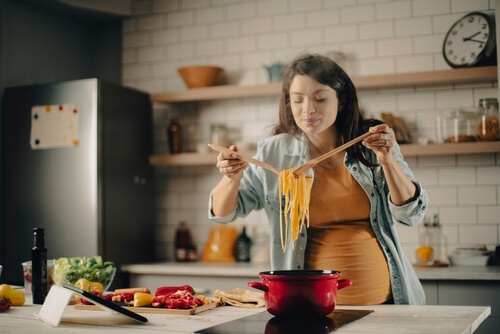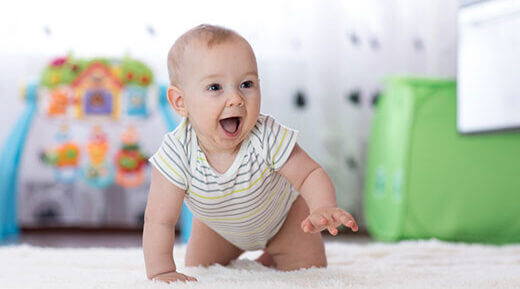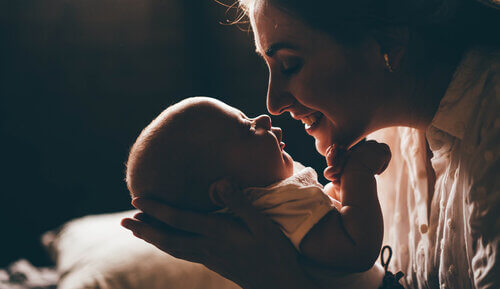
Table of contents
- Nutrition in pregnancy: What should you eat when pregnant?
- Healthy diet in pregnancy: What mustn't you eat when pregnant?
- How many calories do I need while pregnant?
- Undereating while pregnant
- Overeating while pregnant
- Should I give in to pregnancy cravings?
- Eating disorders when pregnant
- Is there any support to buy healthy food during pregnancy?
- Supplements while pregnant
- Helplines
Table of contents
- Nutrition in pregnancy: What should you eat when pregnant?
- Healthy diet in pregnancy: What mustn't you eat when pregnant?
- How many calories do I need while pregnant?
- Undereating while pregnant
- Overeating while pregnant
- Should I give in to pregnancy cravings?
- Eating disorders when pregnant
- Is there any support to buy healthy food during pregnancy?
- Supplements while pregnant
- Helplines
Good nutrition in pregnancy is essential for your baby’s development.
While pregnancy is one of the most important times to ensure that you are looking after your body, it can also be one of the most difficult times to do this. Pregnancy can cause nausea, food aversions, strange cravings, rampant hunger, diminished appetite or just feeling too tired or unwell to cook and eat good food.
Despite these challenges, it’s essential to do your best to get the nutrients that you and your growing baby need.
This article includes guidance on pregnancy nutrition, what to eat while pregnant, foods to avoid, the risks of undereating and overeating, supplements and UK Government support available to help you to buy healthy food.
Nutrition in pregnancy: What should you eat when pregnant?
Eating nutrient-dense foods is essential to boost the healthy growth and development of your baby and to support your body while it’s working so hard.
You will probably hear people say things like, “My sister ate nothing but pickled onions and chips for her whole pregnancy and her baby was perfectly healthy” but that doesn’t mean it’s a good idea.
Below are some foods that will support yours and your baby’s health.
Foods for your baby’s health:
Nutrient-dense foods such as:
- Vegetables
- Eggs
- Whole fruits
- Foods high in protein as this is essential for your baby’s growth:
- Lean meat and poultry
- Fish (fish should be limited, see below)
- Eggs
- Dairy
- Tofu and tempeh
- Pulses
- Nuts and nut butter
Foods high in iron:
- Dark leafy greens like kale and spinach
- Unprocessed red meat
- Tofu
- Dried fruit
Foods to help with fatigue:
- Porridge or wholegrain bread
- Lean meat or eggs
- Nuts
- Plenty of water every day
Foods to ease constipation:
- Beans, lentils and chickpeas
- High-fibre cereals like bran or porridge
- Fruits and vegetables
- Chia seeds
Foods to aid with nausea or heartburn:
- Ginger or ginger tea (non-alcoholic ginger beer may not help as it is carbonated)
- Plain whole grains like brown rice and wholemeal toast
- Yoghurt
- Lean meats and eggs
- Vegetables
Healthy diet in pregnancy: What mustn’t you eat when pregnant?
As well as good nutrition in pregnancy, be aware that there are some foods that carry risks to your unborn baby. These risks are low, so if you have eaten one of these foods don’t panic but avoid them as much as possible.
Foods that carry risk of infection
Listeria is a germ that can cause an infection called listeriosis. Toxoplasma is a parasite that can cause an infection called toxoplasmosis. Both are often harmless but can cause serious harm to your baby and even miscarriage. Though it is unlikely you’ll catch either, both can fail to show symptoms and go undetected, so avoid the following foods that can contain listeria or toxoplasma as much as possible.
- Soft blue/mouldy cheeses – you can eat these if they are cooked till piping hot, if you can stomach it
- Unpasteurised milk or cheese made with unpasteurised milk
- Deli meats, liver, pâté
- Bloody or raw meat
Most eggs are safe to eat semi-cooked or raw because the hens are immunised against salmonella. You can confirm this by the egg having a British Lion stamp on it.
However, do not eat raw or semi-cooked eggs that did not have the British Lion stamp on the shell. Most products made with eggs, such as mayonnaise, use the pasteurised ones but check the labels if you’re unsure.
Foods very high in Vitamin A
Adequate Vitamin A is good for your baby’s immune system but excessive amounts during pregnancy can put your baby at risk of spina bifida and problems with their sight.
Lots of food contain some Vitamin A but liver and foods that contain liver can be extremely high, so should be avoided.
Foods that contain liver include:
- All types of liver (given)
- Liver pâté
- Haggis
A diet high in fat can increase the body’s absorption of Vitamin A.
Excessive junk food
It is also advised to limit your consumption of sugary, fatty and salty foods that provide little nutrition during pregnancy.
You’re not expected to eat perfectly but there are concerns that too much junk food can cause a number of problems, including those associated with excessive weight gain and potentially your baby having a predisposed preference for junk food and raised risk of allergies.
How many calories do I need while pregnant?
You do not need to eat for two, and doing so is likely to cause excessive weight gain.
Advice on how much more you need to eat varies. Some advice (mostly American) says an extra 350 calories a day in the second trimester and an extra 450 calories in the third trimester.
The NHS, however, states that you only need to eat any extra in the third trimester, and that’s just 200 calories.
How much more you need to eat can also depend on your starting weight – if you were underweight at the start of pregnancy you may need to eat more than usual. Whether you were under, over or normal weight to begin with, your midwife can give you personalised advice for your body.
Undereating while pregnant
Your body needs plenty of nutrients and energy to keep itself healthy and to function, but this is even more crucial if it’s also growing a whole new life. Undereating or not getting proper nutrition in pregnancy can mean your body lacks these nutrients and the energy it needs to keep you both healthy.
Weight gain can be a frightening concept for many, with ‘pregorexia’ sometimes being used colloquially to describe women who develop disordered eating as a result of this fear.
You have to gain some weight during pregnancy. How much depends on your starting weight, but for a person starting pregnancy with a normal BMI the average weight gain is around 1.5 – 2 stone for a one-baby pregnancy. It’s important to remember that this isn’t all fat – it includes some necessary fat stores but also extra blood, water retention, bigger boobs, a bigger uterus, the placenta and your baby itself.
Dangers of undereating during pregnancy can include:
- Poor growth and development of the baby
- Your baby having a low birth weight, which can be detrimental to their health
- Increased risk of premature birth
- Increased risk of miscarriage
It can be difficult to eat enough while pregnant, especially if you are experiencing sickness, nausea or low appetite.
If you are not eating enough, you may want to try tracking your food intake or speaking to your midwife.
Symptoms of not eating enough while pregnant, or poor nutrition in pregnancy, include:
- Lack of weight gain, especially after 20 weeks
- Insomnia or difficulty sleeping
- Headaches
- Fatigue
- Constipation (though this is common in pregnancy anyway as your body pulls as much nutrients as it can from your food)
- Dizziness
- Low mood
Eating small amounts regularly can help you to up your food intake, particularly if you are struggling with nausea or low appetite.
Overeating while pregnant
In contrast to the dangers of undereating, eating too much can also pose potential risks. This can be particularly difficult to navigate alongside cravings and increased hunger.
The potential dangers of overeating during pregnancy or gaining an excessive amount of weight include:
- Your baby being very large, which can make birth more difficult and longer, raising the risk of complications
- Your baby having respiratory problems
- Gestational diabetes
- Pre-eclampsia
- Heartburn
- Aggravated back and joint pain
- Higher risk of miscarriage
Remember that quantity isn’t everything. For example, if you ate 3000 calories’ worth of crisps and nothing else every day for weeks you would be getting too many calories but potentially be at risk of deficiencies in calcium, protein and various vitamins and minerals. It is possible to face the risks of both overeating and undereating if you have a very poor diet. Eating a balanced diet with plenty of nutrients is important for the health and development of your baby.
Should I give in to pregnancy cravings?
It’s very common to have cravings during pregnancy, especially in the first trimester.
Common cravings include pickled foods, chocolate and ice cream, cheese, starchy foods and meat.
They are generally caused by hormones, rather than that food being what your body particularly needs, though you may want to be mindful of what your diet may be lacking. For example, if you are craving meat, your body may be telling you it needs more protein or iron than you are currently getting.
As long as you maintain a balanced diet, it’s generally okay to go with your cravings. One strategy you can use to manage them is to eat just a little of what you want. For example, if you’re aching for chocolate, eating a small bar very slowly might ease your craving just as much as eating a big bar quickly.
Eating disorders when pregnant
If you have an eating disorder or a history of eating disorders, be sure to tell your midwife. You should be asked about it in your first midwife appointment anyway.
Eating disorders or disordered eating can make it far more challenging to look after yourself during pregnancy.
The weight gain that goes with pregnancy, anxiety about eating well and the feeling of having less control over your own body can be a trigger for some people. If you feel you are developing harmful thoughts or behaviours around eating and exercise, speak to your midwife or GP.
Is there any support to buy healthy food during pregnancy?
If you are on certain benefits and worried that you cannot afford nutritious food, you may be eligible for the Healthy Start scheme.
This is a UK Government initiative in which you are given a card that you can use to buy vegetables, pulses, milk, baby formula and vitamins.
You may be eligible if you are at least ten weeks pregnant and/or you have a child under four years old.
Scotland has its own schemes, the Best Start Grant and Best Start Foods.
Supplements while pregnant
You can get special pregnancy vitamins from pharmacies and supermarkets that contain folic acid and all the other vitamins and minerals that are essential for your baby’s development.
Do take:
- Folic acid – essential for your baby’s brain development and spinal cord. You should ideally start taking this as soon as you start trying for a baby but if you weren’t expecting to be expecting, begin taking it when you discover you’re pregnant. The first trimester is the most important time to take folic acid, but it does no harm to continue throughout your pregnancy.
- Choline – for your baby’s brain and spinal cord.
- Iodine – for your baby’s brain.
- Iron – your body needs to make around twice as much blood during pregnancy – taking an iron supplement ensures that your baby is getting enough oxygen and helps to prevent you from becoming anaemic.
- Calcium – important for your baby’s bones. It’s very possible to get enough calcium from your diet; if you do need to supplement calcium, it can be better to take it at a different time of day to your iron as calcium can tamper with iron absorption.
Don’t take:
- Vitamin A, as too much of this can cause serious health problems in your baby
- Additional multivitamins as these will contain Vitamin A
Helplines
Pregnancy Crisis Helpline
Website: Pregnancy Crisis Helpline
Helpline: 0800 368 9296
Tommy’s Pregnancy Hub
Sign up for email support from midwives: Help and support | Tommy’s
Beat eating disorder charity
Website: Beat
Helplines:
- England: 0808 801 0677
- Scotland: 0808 801 0432
- Wales: 0808 801 0433
- Northern Ireland: 0808 801 0434


